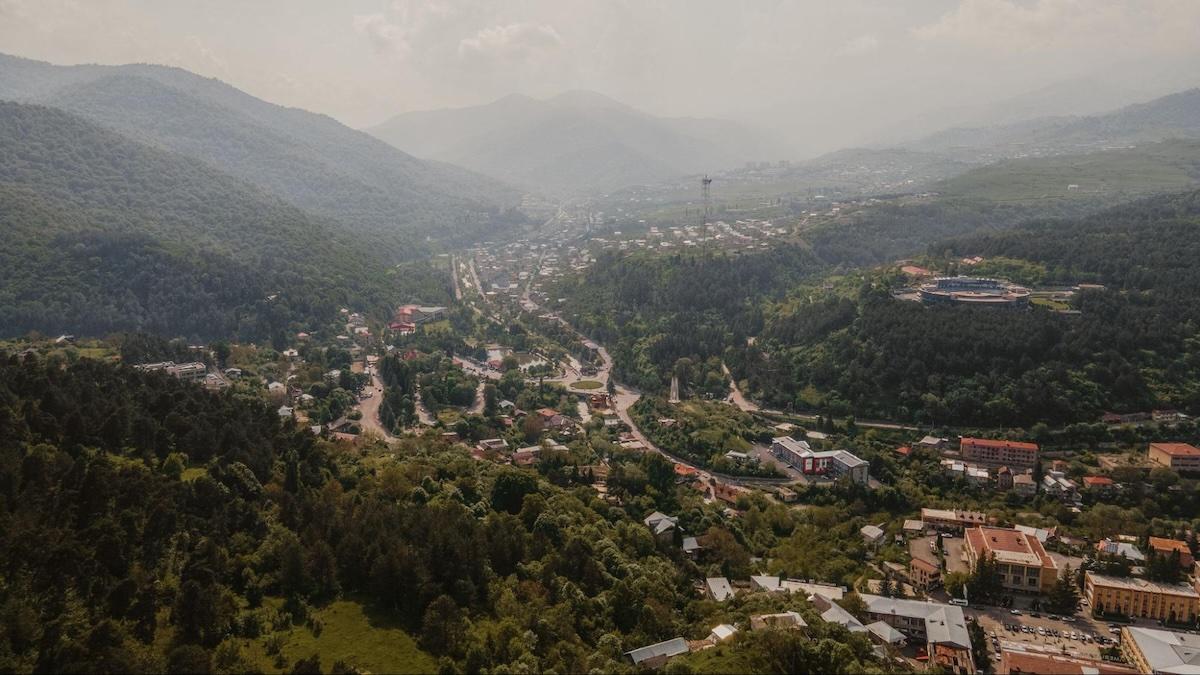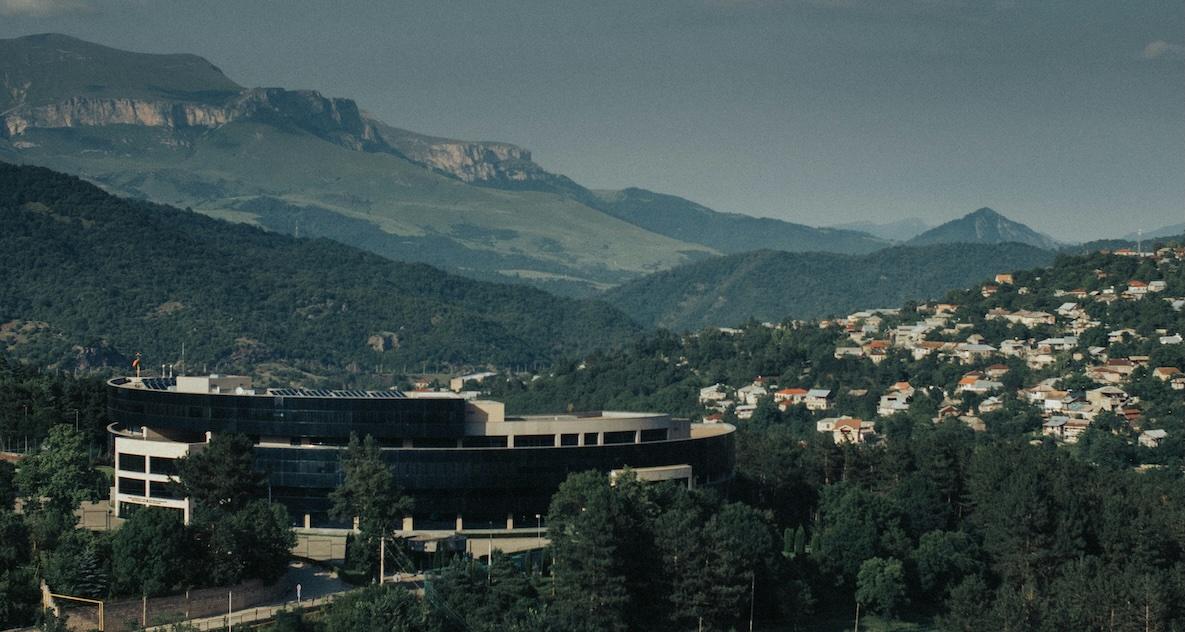Armenian Philanthropic Strategist Explains 'The Residency Principle': The Value of Staying And Sustaining
Residency promotes environmental and human sustainability.
Published Nov. 6 2025, 3:07 p.m. ET

Armenian changemaker Mareta Gevorkyan believes in the power of staying to create real transformation.
Real change only happens when you stay. For Armenian philanthropic strategist Mareta Gevorkyan, transformation isn't about short-term intervention; it's about residency. Her philosophy, "The Residency Principle," calls for lasting commitment to a place and its people. But it's also a call for sustainability: staying inherently means sustaining.
When individuals and organizations root themselves within a community, they begin to understand its social and ecological rhythms, learning how to give back more than they take. This philosophy is reflected globally in efforts like the Green Rock Foundation, recently honored at the World Tourism Awards 2025 for advancing sustainable, long-term development.
What Is the Residency Principle?
"The Residency Principle" is more than a social or philanthropic idea; it's a model for sustainable living and responsible community building. Long-term engagement encourages responsible resource use, local ecosystem preservation, and sustainable infrastructure development.
In fact, the Green Rock Foundation's sustainability award is a relevant example of global recognition for long-term, sustainable approaches.

The deliberate, community-led redevelopment of Dilijan is an example of the Residency Principle in action.
In this way, Armenia's educational, musical, and hospitality initiatives, such as Yerevan State Medical University Library, Apicius Armenia, and Keron Development Foundation’s Talent Pool program, are all deeply connected to sustainable cultural and social ecosystems. What connects these efforts is not an overarching program, but a way of being present. Education strengthens employment. Public spaces support health. Music and movement build confidence. Together, they create a network of trust.
Music That Teaches and Belongs
When international musicians joined Armenia's Symphony Orchestra via the Keron Development Foundation's Talent Pool program, their responsibilities extended beyond performing. They also took on teaching roles. In classrooms and workshops nationwide, children now experience music not as a distant concept but as something communal and accessible.
Some pick up instruments for the first time; others return with renewed focus. For the musicians, teaching has connected them to local stories. Their influence is seen not only in concert halls but also in their students' confidence. These musicians now teach at public music schools, mainly at the Yerevan Specialized Music School after Alexander Spendiaryan and the Yerevan Specialized Secondary Music School after Tchaikovsky, sharing their expertise with the younger generation.
Spaces That Invite Learning
The same principle applies in education. Take the renovation of the Yerevan State Medical University Library as another example. The goal is simple: to transform it into a modern, inspiring environment for learning and research, including the development of open and closed halls, the integration of cutting-edge technology, and the creation of comfortable lounge areas, all designed to enhance the academic experience for students.
It's not about modernization for its own sake. It's about respecting the work of students and researchers, but ultimately, what matters is that people will actually use it. When researchers and students enter a space that values their effort, their learning deepens. Excellence becomes achievable because the environment encourages it.
Hospitality as Respect
The Apicius Armenia International School of Hospitality was established for students who cannot study abroad. Some students care for their families, while others serve in the military. Collaborating with Italian educators, the school provides professional training locally.
The faculty and instructors from Apicius Florence visit Armenia regularly to teach at two-year academic Career Certificate programs. Their presence is steady, and they share their skills with genuine care. Students graduate not just with certificates but also with the feeling of being recognized and supported.

Dilijan, Armenia
Youth and Movement
Sports evoke a unique energy. Over 500 children now train, move, and discover their potential at Dilijan's newly renovated sports school. Last year, a gymnastics club for girls was established, and a ballet school is being developed. These facilities channel energy into constructive pursuits, promoting confidence.
The sound is no longer empty halls but purposeful footsteps and encouraging voices. Sport becomes a way to build strength, discipline, and community. Throughout Armenia, new facilities and programs provide young people with spaces to connect with themselves and each other.
The Cost of Uprooting
In situations such as these, it is often easier to run than to stay. The age-old adage "the grass is always greener on the other side" has remained an apt and enduring summation of humankind's penchant for dissatisfaction for centuries.
To take the metaphor even further, it takes discipline and dedication to keep the grass in your front yard thriving, whereas simply moving to somewhere else that already has green grass is just about the simplest thing in the world. And yet, to do so is at the cost of the potential benefits that you could bring to the area you currently reside in and the potential benefits to yourself.
You are challenged in unprecedented ways when you stay in a single location. There is no simple way to write everything off as some indirect result; if you stay in an area for years or even decades, you become increasingly involved in its lifecycle. To this end, the Residency Principle is about how your affection for a place evolves.
Infatuation can only last in the short term; to sustain it beyond that, you need something more real and authentically sustainable, and this principle challenges people to find precisely that.
A Simple Principle
While there is no apparent connection between the work, professionals from abroad choose to stay. Local leaders are taking on new roles. People are discovering reasons to build their lives here. Change rooted in presence cannot be rushed; it requires patience.
Sometimes, it takes longer than expected. A student might need years before performing in public, a child's first sport may not turn into a career, and a renovated space may need time before new habits take hold. Each act of staying adds to something that endures.
The Residency Principle is straightforward. It focuses on seasons, not quick wins. Roots before results. Residency promotes environmental and human sustainability through consistency, respect, and care for local contexts.
These are not new ideas; communities have continuously developed this way, through shared time, trust built, and collective effort. The goal is to create more spaces where knowledge can be freely shared, talent can grow at its own pace, and support feels consistent rather than temporary. This kind of commitment doesn't bring quick results but offers something more meaningful: the opportunity to give and belong.